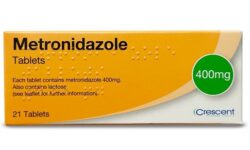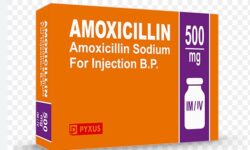Benefits of Exercise
In today’s fast-paced and sedentary lifestyle, it can be challenging to prioritize our physical fitness. However, incorporating regular exercise into our daily routines is essential for maintaining a healthy lifestyle. Not only does exercise improve cardiovascular health, but it also boosts mood and mental well-being, supports weight loss and management, and enhances overall physical strength and endurance. Join me as we explore the incredible benefits of exercise, and learn how it can positively impact our lives both physically and mentally.
Improves Cardiovascular Health
Regular exercise is not only essential for maintaining a healthy weight and physical appearance, but it also plays a crucial role in improving cardiovascular health. Engaging in various forms of physical activity can significantly enhance the overall functionality of your heart and promote better circulation throughout the body. The benefits of exercise on cardiovascular health are numerous and range from reducing the risk of heart disease to boosting energy levels and promoting longevity.
One of the primary advantages of exercise on cardiovascular health is its positive impact on heart strength and efficiency. When you engage in regular physical activity, your heart becomes stronger, thereby facilitating its ability to pump blood more efficiently. This enhanced pumping action results in a decreased resting heart rate and decreases the workload on the heart, reducing the risk of heart-related illnesses. Additionally, exercise helps in maintaining healthy cholesterol levels, thereby preventing the buildup of plaque in the arteries.
Exercise has also been found to lower blood pressure, another significant part of maintaining cardiovascular health. Engaging in physical activity on a regular basis helps to keep blood vessels flexible and elastic, reducing strain on the arterial walls. This, in turn, leads to a decrease in overall blood pressure levels, decreasing the risk of heart attacks and strokes. By incorporating exercise into your daily routine, you can effectively manage hypertension and improve overall cardiovascular well-being.
- Enhancing overall physical strength and endurance is yet another benefit of exercise that supports cardiovascular health. Regular exercise promotes the development of lean muscle mass, improving muscular strength and stamina. As your strength improves, everyday tasks such as carrying groceries or climbing stairs become easier, leading to a decrease in the strain placed on your cardiovascular system. Moreover, exercise increases oxygen and nutrient delivery to muscles, helping them function optimally, and preventing fatigue and weakness.
| Benefits of Exercise for Cardiovascular Health |
|---|
| Improved heart health: Regular exercise strengthens the heart, promotes better circulation, and reduces the risk of heart diseases. |
| Lower blood pressure: Engaging in physical activity helps in maintaining healthy blood pressure levels, reducing the risk of heart attacks and strokes. |
| Increased physical strength and endurance: Exercise enhances muscular strength and stamina, making everyday tasks easier and minimizing strain on the cardiovascular system. |
In conclusion, incorporating exercise into your lifestyle provides various benefits for your cardiovascular health. With improved heart strength, lowered blood pressure, and enhanced physical strength and endurance, regular physical activity is an essential component of maintaining a healthy heart and overall well-being. Whether it is through aerobic exercises, strength training, or simply incorporating more movement into your daily routine, investing time and effort into exercise is a valuable investment in your long-term cardiovascular health.
Boosts Mood And Mental Well-Being
Exercise is not just about improving physical health; it also has numerous benefits for mental well-being and mood. Engaging in regular physical activity has been shown to boost mood and improve mental health in various ways.
Stress Relief: Exercise is a great stress reliever. When you engage in physical activity, your body releases endorphins, also known as “feel-good” hormones. These endorphins act as natural painkillers and mood elevators, helping to reduce stress and anxiety. Regular exercise can help you better cope with the challenges of daily life and improve your overall mental well-being.
Reduced Risk of Depression: Studies have found a strong link between exercise and a reduced risk of depression. Regular physical activity stimulates the production of various neurotransmitters, such as serotonin and dopamine, which play essential roles in regulating mood. By increasing the level of these neurotransmitters, exercise can help alleviate symptoms of depression and prevent its onset.
Improved Cognitive Function: Exercise not only benefits your mood but also enhances your cognitive function. Regular physical activity promotes better blood flow to the brain, which helps nourish brain cells and improve their function. It has been found that exercise can enhance memory, attention, and overall cognitive abilities. So, by engaging in physical activity, you can improve your mental well-being and boost your brainpower.
- Enhanced Sleep Quality: One of the ways exercise boosts mood and mental well-being is by promoting better sleep. Regular physical activity can help regulate your sleep patterns, making it easier for you to fall asleep and stay asleep throughout the night. Quality sleep is vital for maintaining good mental health, and exercise can contribute to a restful night’s sleep.
| Benefits of Exercise: | |
|---|---|
| Improved Mood | Reduced Risk of Depression |
| Stress Relief | Enhanced Sleep Quality |
| Increased Energy Levels | Improved Cognitive Function |
In conclusion, exercise not only improves cardiovascular health and enhances physical strength but also has remarkable benefits for mood and mental well-being. By engaging in regular physical activity, you can experience reduced stress, lower risk of depression, improved cognitive function, and enhanced sleep quality. These positive effects on mental health make exercise an essential component of a balanced and healthy lifestyle.
Helps With Weight Loss And Management
Exercise plays a crucial role in achieving weight loss and effectively managing weight. It not only helps in burning calories but also increases metabolism, making it easier to shed those extra pounds. Regular exercise combined with a balanced diet can lead to a healthy weight loss journey. There are various ways in which exercise helps with weight loss and management.
1. Burning Calories: When you engage in physical activity, your body burns calories. The intensity of the exercise determines the number of calories burned. By incorporating different types of exercises, such as cardio, strength training, and high-intensity interval training (HIIT), you can maximize calorie burn and promote weight loss.
2. Boosting Metabolism: Regular exercise helps boost your metabolism, which is the rate at which your body burns calories. With an increased metabolic rate, your body continues to burn calories even when you are at rest. This makes it easier to maintain weight loss and prevents weight regain.
3. Building Lean Muscle: Exercise not only helps in losing fat but also aids in building lean muscle mass. Muscle is more metabolically active than fat, meaning it burns more calories even at rest. By incorporating strength training exercises into your routine, you can increase your muscle mass and boost your overall calorie-burning potential.
- 4. Improving Overall Body Composition: Regular exercise not only helps in weight loss but also improves body composition. It helps in reducing body fat percentage while increasing muscle mass, resulting in a toned and lean physique.
- 5. Controlling Appetite: Exercise can help regulate appetite and reduce food cravings. It releases hormones in your body that suppress hunger and make you feel satisfied. By incorporating exercise into your weight management routine, you can have better control over your food choices and portion sizes.
- 6. Enhancing Energy Levels: Engaging in regular exercise boosts energy levels and improves overall stamina. This can help you stay active throughout the day, burn more calories, and be more motivated to engage in physical activities.
| Exercise Benefits: | Sentence Example: |
|---|---|
| Boosts cardiovascular health | Regular exercise improves cardiovascular health by strengthening the heart and increasing blood circulation. |
| Enhances mental well-being | Exercise releases endorphins, also known as the “feel-good” hormones, which positively impact mental well-being and reduce stress. |
| Increases physical strength and endurance | Through regular exercise, you can increase your physical strength and endurance, allowing you to perform daily activities with greater ease. |
Overall, exercise not only helps with weight loss but also plays a vital role in weight management. It offers numerous benefits, such as burning calories, boosting metabolism, building lean muscle, improving body composition, controlling appetite, and enhancing energy levels. By incorporating exercise into your daily routine and combining it with a healthy diet, you can achieve your weight loss and management goals effectively.
Enhances Overall Physical Strength And Endurance
Regular exercise offers numerous benefits for overall physical strength and endurance. Whether you’re an athlete looking to improve your performance or simply someone wanting to enhance your fitness level, incorporating exercise into your routine can make a significant difference. By engaging in regular physical activity, you can increase your strength, boost your endurance, and ultimately improve your overall fitness.
One of the key benefits of exercise is the enhancement of muscular strength. When you engage in activities such as weightlifting, resistance training, or bodyweight exercises, you stimulate your muscles to become stronger and more resilient. This increased strength not only allows you to perform daily tasks more efficiently but also reduces the risk of injury. Having strong muscles can significantly improve your quality of life and enable you to engage in activities that require physical strength.
In addition to muscle strength, exercise also helps improve your endurance. Endurance is the ability of your body to sustain physical activity over an extended period. Regular aerobic exercises like running, swimming, or cycling can improve your cardiovascular endurance by strengthening your heart and lungs. This increase in endurance enables you to engage in activities for a longer duration without experiencing excessive fatigue.
Furthermore, exercise can also enhance your overall physical performance. In any physical activity, be it a sport, recreational activity, or everyday tasks, having greater strength and endurance allows you to perform better. Whether it’s lifting heavier weights, running faster, or simply keeping up with the demands of a busy day, the benefits of exercise on physical performance are undeniable. By consistently challenging your body through exercise, you can continually enhance your physical capabilities.
- Overall, exercise plays a crucial role in enhancing your physical strength and endurance. It helps promote muscle strength, improve cardiovascular endurance, and enhance overall physical performance. Whether you’re a professional athlete or someone looking to improve their fitness level, incorporating regular exercise into your routine can bring about significant transformations in your physical well-being. So, lace up your shoes, hit the gym, and start reaping the benefits of exercise today!
Frequently Asked Questions
What are the benefits of exercise on cardiovascular health?
Exercise helps improve cardiovascular health by strengthening the heart muscle, reducing blood pressure, and improving blood circulation.
How does exercise boost mood and mental well-being?
Exercise stimulates the release of endorphins, which are natural mood boosters. It also helps reduce stress, anxiety, and symptoms of depression.
Can exercise help with weight loss and management?
Yes, regular physical activity, combined with a healthy diet, can aid in weight loss and weight management. It helps burn calories, increases metabolism, and promotes fat loss.
How does exercise enhance overall physical strength and endurance?
Exercise strengthens muscles, improves bone density, and enhances overall physical strength. It also increases stamina and endurance, allowing individuals to engage in activities for longer periods without fatigue.
What types of exercises can improve cardiovascular health?
Cardiovascular exercises such as brisk walking, running, cycling, swimming, and aerobic exercises are effective in improving cardiovascular health.
How often should one exercise to experience the benefits?
To experience the benefits of exercise, it is recommended to engage in moderate-intensity aerobic activity for at least 150 minutes per week or vigorous-intensity aerobic activity for 75 minutes per week. Additionally, strength training exercises should be performed at least twice a week.
Are there any age restrictions for exercise?
Exercise can benefit individuals of all ages. However, it is important to consult a healthcare professional before starting any new exercise regimen, especially for individuals with certain medical conditions or those who are elderly.



